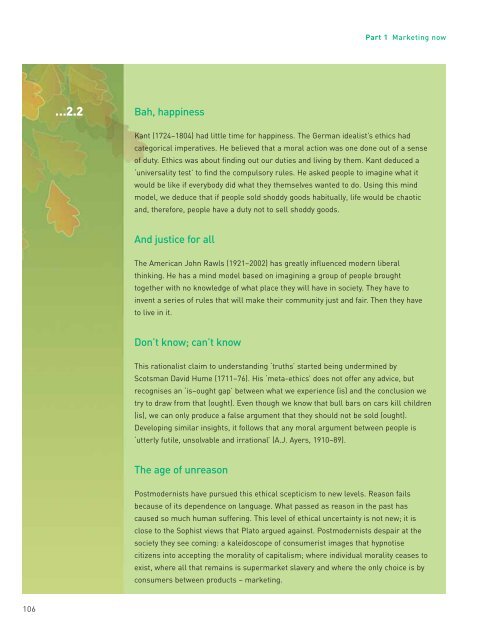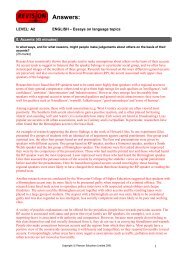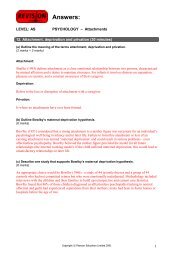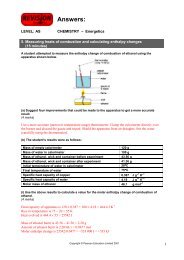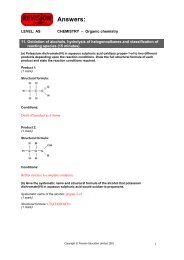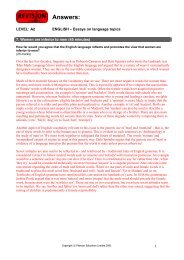The Dove Campaign for Real Beauty - Pearson
The Dove Campaign for Real Beauty - Pearson
The Dove Campaign for Real Beauty - Pearson
You also want an ePaper? Increase the reach of your titles
YUMPU automatically turns print PDFs into web optimized ePapers that Google loves.
Part 1 Marketing now…2.2Bah, happinessKant (1724–1804) had little time <strong>for</strong> happiness. <strong>The</strong> German idealist’s ethics hadcategorical imperatives. He believed that a moral action was one done out of a senseof duty. Ethics was about finding out our duties and living by them. Kant deduced a‘universality test’ to find the compulsory rules. He asked people to imagine what itwould be like if everybody did what they themselves wanted to do. Using this mindmodel, we deduce that if people sold shoddy goods habitually, life would be chaoticand, there<strong>for</strong>e, people have a duty not to sell shoddy goods.And justice <strong>for</strong> all<strong>The</strong> American John Rawls (1921–2002) has greatly influenced modern liberalthinking. He has a mind model based on imagining a group of people broughttogether with no knowledge of what place they will have in society. <strong>The</strong>y have toinvent a series of rules that will make their community just and fair. <strong>The</strong>n they haveto live in it.Don’t know; can’t knowThis rationalist claim to understanding ‘truths’ started being undermined byScotsman David Hume (1711–76). His ‘meta-ethics’ does not offer any advice, butrecognises an ‘is–ought gap’ between what we experience (is) and the conclusion wetry to draw from that (ought). Even though we know that bull bars on cars kill children(is), we can only produce a false argument that they should not be sold (ought).Developing similar insights, it follows that any moral argument between people is‘utterly futile, unsolvable and irrational’ (A.J. Ayers, 1910–89).<strong>The</strong> age of unreasonPostmodernists have pursued this ethical scepticism to new levels. Reason failsbecause of its dependence on language. What passed as reason in the past hascaused so much human suffering. This level of ethical uncertainty is not new; it isclose to the Sophist views that Plato argued against. Postmodernists despair at thesociety they see coming: a kaleidoscope of consumerist images that hypnotisecitizens into accepting the morality of capitalism; where individual morality ceases toexist, where all that remains is supermarket slavery and where the only choice is byconsumers between products – marketing.106


